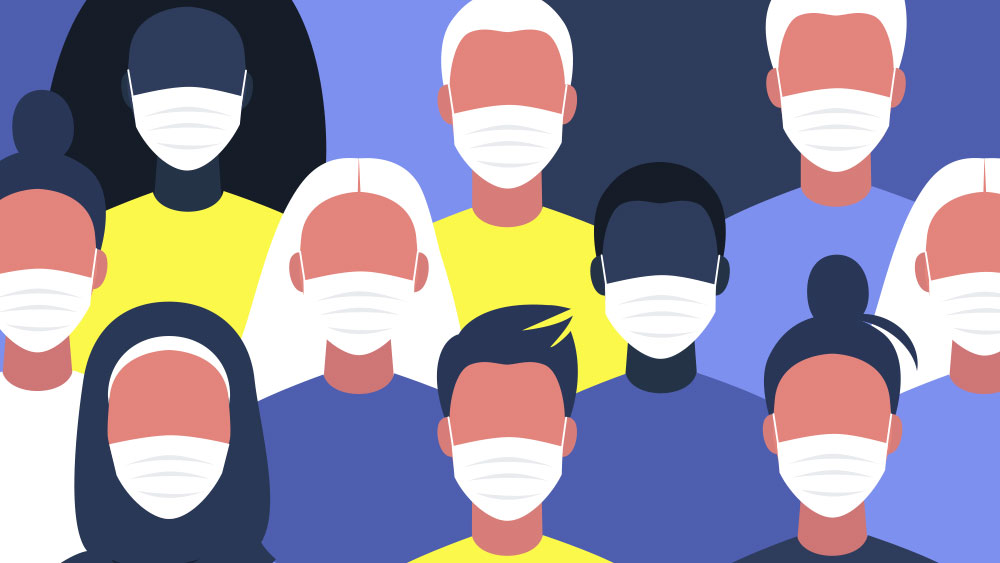
In his book Soft Power: The Means to Success in World Politics, Joseph S. Nye, Jr. uses the analogy of a three-dimensional chess board in examining “power resources in the contemporary information age.” He warns that for transnational issues like the spread of infectious diseases, “power is widely distributed and chaotically organized among State and non-State actors. Obtaining favorable outcomes often requires the use of soft power assets.” According to Nye, “soft power” is not based on force or economics but on “leading by example, an alternative to shared values and the justness and duty of contributing to the advancement of those values.” He warns that “narrow values and parochial cultures are less likely to produce soft power. Domestic or foreign policies that appear to be hypocritical, arrogant, indifferent to the opinion of others, or based on a narrow approach to national interest can undermine soft power.”
During the past year, the U.S. has squandered the soft power it had developed during the Obama years. Contrasts between the U.S. response to the Ebola crisis and the COVID pandemic are markedly, and, in terms of human lives, international collaboration and international soft power gains, disastrously different. When the Ebola virus struck, the U.S. government led the international response. It provided health personnel on the ground in impacted countries, helped to construct treatment units in the region, provided tons of personal protective equipment and treatments, and helped train local health care personnel, among other actions.
By contrast, U.S. soft power COVID diplomacy was virtually nonexistent during the Trump administration. The U.S. government was not even a member of COVAX, the global coalition led by Gavi, CEPI (Coalition for Epidemic Preparedness Innovations) and the World Health Organization, dedicated to accelerating the development and manufacture of COVID-19 vaccines and “guaranteeing fair and equitable access for every country in the world.” The Government also made no export deals with middle- or low- income countries for COVID related treatments and provided virtually no collaborative support to the international scientific or public health community.
While the U.S. did nothing, other countries, most notably China, Russia and India stepped into the vacuum. They have all used soft power diplomacy –providing medical support, testing kits, masks, and, more recently, vaccines – to strengthen their economic and political relationships with a wide swath of middle- and low- income countries, around the globe.
The result of this soft power diplomacy is already paying economic and political dividends for successful participants. Russia’s domestic vaccine Sputnik V has reportedly been approved in 26 countries; China’s Coronovac and Sinovac in 15 countries. India reportedly is seeking approval for its Bharat vaccine in 40 countries. Critically, China, Russia and India have already supplied or agreed to supply millions of doses to countries as diverse as Algeria, Bangladesh, Brazil, Bulgaria, Cambodia, Egypt, Hungary, Indonesia, Jordan, Laos, Malaysia, Mayanmar, Nepal, Paraguay, the Philippines, Sri Lanka, UAE, the Ukraine, and the African Union.
The moral and humanitarian issues raised by the U.S. failure to provide greater support to middle- and low- income countries, a critical source of international soft power, are enormous. WHO Director General Tedros Adhanom Ghebreyesus described the world as “on the brink of a catastrophic moral failure noting that although 39 million doses have been administered in more than 40 higher-income countries, one poor country has been given only 25 doses.”
Scientists have already warned that no country will be safe until every country has the pandemic under control. Uncontrolled countries, where the majority of the population remains largely unvaccinated and without other sources of immunity, necessarily become petri dishes for new variants. These variants in turn inevitably travel around the globe with the impact of potential re-infection similar to annual flu variations, but with a potentially deadlier impact.
The political damage caused by this loss of soft power has already become readily apparent. For example, President Biden’s efforts to reach out to European allies to craft a united front on a China trade policy has already stumbled as a result of the growth of China’s trade relations with the EU last year. This growth included China’s provision of COVID supplies and medical support to several members of the EU, including Hungary, the Czech Republic, Italy, France and Greece. China and the EU are already finalizing a wide-ranging investment treaty
Beyond science and political power is the economic impact of failed U.S. diplomatic efforts for COVID relief. These include ruptured global supply chains for necessary ingredients to manufacture COVID related equipment, treatments, and vaccines.
Re-Invigorating U.S. COVID Diplomacy under Biden
In the 30 days since the inaugural, President Biden has already taken critical steps to re-invigorate U.S.’s moribund COVID Diplomacy. Biden’s re-engagement letter to the World Health Organization, his 200-page National Strategy for the COVID-19 Response and Pandemic Preparedness, released January 21, 2021, listing the need to “strengthen” and “surge the international COVID-19 public health & humanitarian response” and the recent commitment to support COVAX with a $1 billion donation spread over the next two years are excellent first steps. But the momentum created by these actions must be strengthened by additional steps that could be taken now that would not only strengthen U.S. soft power internationally, but would also preserve lives, globally.
Step 1: Expand Government Collaboration with International Scientific and Public Health Community
The Trump administration’s withdrawal from WHO, combined with an incomprehensible refusal to consider scientific advice in creating domestic and international COVID policies, has seriously undermined the collaborative responses required to combat successfully the global pandemic. Global scientific collaboration had already been seriously reduced as a result of the limitations on travel, international exchanges and an understandable inward focus on resolving domestic challenges in the face of a deadly pandemic.
While private actors have continued to participate in WHO-sponsored and other international forum, U.S. government actors have been virtually non-existent. Re-engagement with WHO should help. Webinars organized by U.S. agencies with a range of collaborative partners from a diversity of countries would reconnect U.S. government outreach with existing and expanding private ones. It could also open new channels of communication to the benefit of both domestic and international scientific and health communities.
With new variants guaranteed to continue to reappear, the need for continued innovation in efforts to defeat COVID-19 must remain ongoing. Sharing information particularly in connection with testing and tracing could immediately improve, not only the global response, but the U.S. one as well.
Step 2. Reduce Barriers to Rapid Production of Effective Treatments
There is no question that President Biden’s early steps in correcting the disastrous results of “Operation Warp Speed” have raised single day vaccination rates to approximately 1.6 million doses per day. Such rates may not be sustainable over the long term, however, unless we ensure that production itself can be increased. Although companies like Astra Zeneca and Remdesivir have already entered into voluntary licenses with various drug companies in diverse countries, including Brazil and India, to produce COVID-related vaccines and treatments, relying solely on licenses granted by creator companies, given their non-transparent nature and the inability to regulate prices or production schedules, is a foolish, if not deadly, policy choice.
To support the rapid production of effective treatments, the U.S. must abandon its dedication to a relic of intellectual property law. It must re-imagine IP to include compulsory licenses to combat national public health emergencies. This re-imagination must include protective measures to ensure that adequate compensation is granted to the creator company to protect future R&D funding as well as access to critical trade secrets and technologies to support the licensed rapid manufacturing of the drugs. This approach would not only save lives, it would also reinvigorate the U.S.’s role as a source for forward-thinking policies on the international stage.
Despite Biden’s executive order triggering the use of the Defense Production Act [50 U.S.C. §4501 et seq] “to secure supplies necessary for responding to the pandemic,” it is not being used to mandate third party vaccine production itself. This reticence could be a deadly mistake.
Such compulsory licenses should not only license the intellectual property required to produce the vaccine or treatment at issue, it must also require limited disclosure and restricted use of necessary trade secret data and technology for the rapid and effective production of the licensed product. Such licenses should further be restricted to those third parties who are capable of manufacturing the vaccines – no sublicenses or other uses allowed.
Since not all COVID drugs are protected under patent, trade secret compulsory licenses also served the critical role of assuring that non-patented or pre-patent drugs can also be rapidly produced by third party manufacturers, as needed. A well-thought-out compulsory license policy would also set reasonable pricing standards so that truly adequate compensation, or even a statutory license fee such as exists in copyright, would be required.
Step 3: Protect Supply Chain Purity and “Brand USA”
Increasing and improving existing methods for reducing counterfeit and fake ingredients and drugs, and shoddy equipment and associated supplies is critical to ensuring a safe global supply chain for COVID related equipment, treatments and vaccines. Given how deadly the virus has proven to be, any such shoddy, fake or counterfeit products are life-threatening at best, if not outright deadly.
Tighter security measures designed to ensure drug supply chain purity must be imposed. These could include limiting import/export licenses to companies whose ability to provide safe, non-counterfeit versions of the relevant drug is proven before such licenses are issued and prohibiting the online sale of such drugs, or at least limiting such sales to one or two authorized sites. It should also include tracking and monitoring licensed shipments in combination with severe penalties for trafficking in counterfeit drugs. Those penalties should include potential prison sentences in order to assure public safety.
To assure the safety of U.S. vaccines and related COVID-19 treatments produced under third party licenses, whether voluntary or not, such vaccines must be subject to periodic quality control. In the case of compulsory licenses, those periodic checks should be conducted by the appropriate government agency, for example the National Institute for Occupational Safety or Health (NIOSH).
Strengthening protections against counterfeit drugs would also enhance the power of “Brand USA” as a marketing tool for exported or licensed U.S. goods and services. As I described in my article “Is Fame All There Is? Beating Global Monopolists at Their Own Marketing Game,” brands do not merely carry the reputation of their associated companies. They also carry the reputation of their perceived country of origin.
“Brand U.S.A” can serve as a guarantee of the quality and safety of perceived U.S. goods and equipment, including those sold abroad by local distributors, franchisees and licensed manufacturers. But to serve that critical role, the Government must aggressively combat domestic and international counterfeits and “fake” medicines. Such protection is not only required to shore up U.S. diplomatic actions, it will also save lives.
The sooner these protections are in place, the more lives will be saved through the increased availability of vaccines that third party licenses will create. And that may be the best use of soft power after all.



